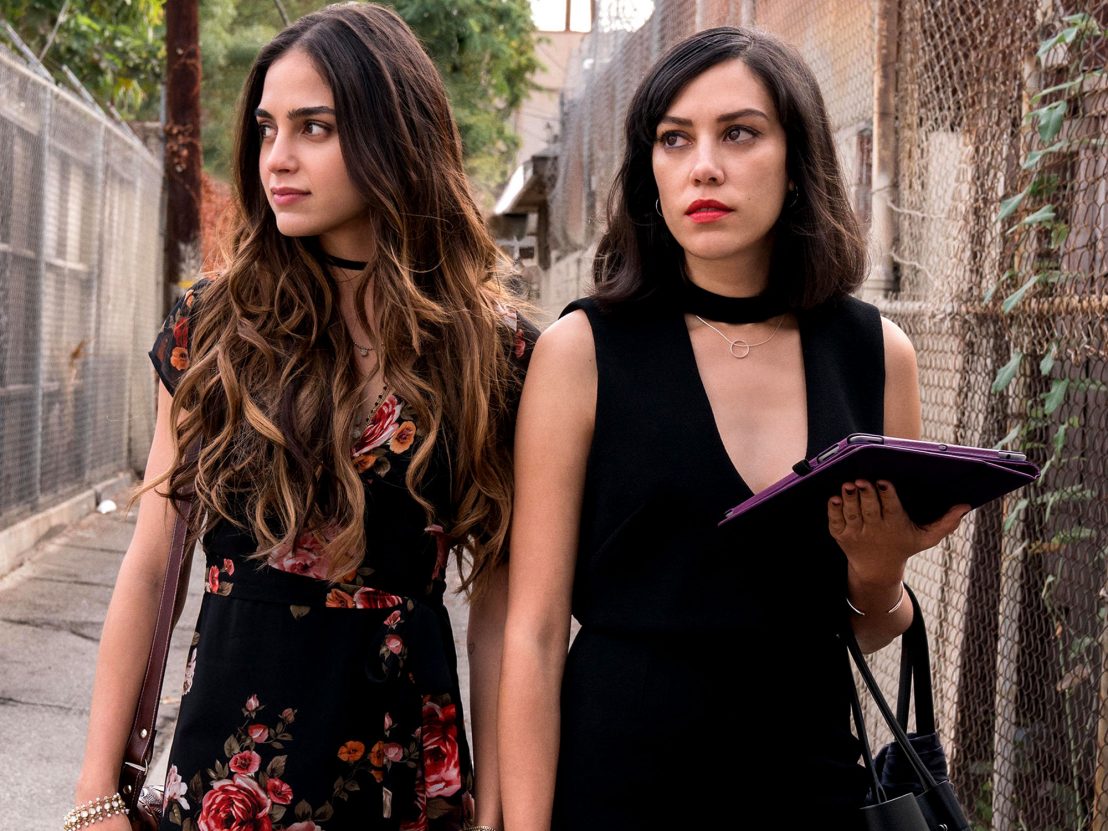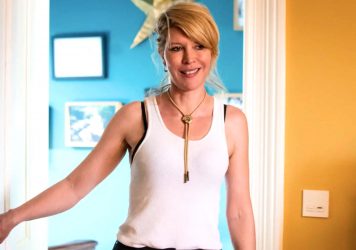
It’s not easy to depict what it means to grow up in cultural limbo, feeling the pull from both your family’s heritage and your country of residence. Nor is it an easy feat to find a narrative that explores these complexities in terms that feel both personal and community-centred, as well as globally recognisable by minority groups from the US to Mexico, Britain to Pakistan. And yet writer Tanya Saracho has managed to do exactly that with her exceptional Starz drama, Vida.
The show follows the Hernández sisters Emma (Mishel Prada) and Lynn (Melissa Barrera), polar opposites who are forcibly reunited following the death of their mother, Vidalia (Rose Portillo). The first season saw the sisters trying to navigate through the chaos their mother left behind: a failing neighbourhood bar in deep debt, sporting a name that feeds into the ignorant, racist attitudes prevailing in this LA community (namely, “La Chinita”); a whole host of unresolved relationship tensions; and, of course, Vida’s wife, Eddy (Ser Anzoategui) – a huge surprise to both sisters who were not even aware of their mother being lesbian, let alone married.
Throughout the season, Saracho did a fantastic job at introducing the many beautiful gente that make up this unique community – people who unite in their shared struggles and are not afraid to fight for their rights and the preservation of their neighbourhood. Vida’s vibrant, urban Californian backdrop brings the characters’ environment to life, especially Marisol’s (Chelsea Rendon), the vigilante fighting for a “pueblo unido” and against the gentrification of her neighbourhood.
Marisol’s run-ins with Emma and Lynn also point to the racial conflicts within the Latino community, with colourism evidently playing an essential role in the division of la gente – hence, Emma’s fair skin and higher education is not only noted, but often despised by others who view her as “a certain type of people”. In other words, the same type of people who are adamant to gentrify the neighbourhood in favour of white-washed riches.
In its second season, Vida picks up right where it left off. With the Hernández sisters having decided on “bucking up” and adopting a new form of “shit togetherness”, they are adamant to save their mother’s bar, despite the lingering emotional resentment Emma feels towards her. Having spent so much time away from home, Emma and Lynn are often treated like outsiders, making their ambitious project to save Vida’s bar legacy, as well as the building that homes it, all the more challenging.
Emma’s approach to generating the income needed for them to survive goes against everything Eddy and Vidalia worked for their entire lives: leasing agents would attract the people who are systematically taking over the neighbourhood – read, white, upper-class gringos – whereas flyers at the laundromat would attract la gente, the people Vidalia and Eddy have housed in their building for decades.
Vida dives into the cultural make-up of this Californian Latin-community without leaving one stone uncovered. Offering an honest depiction of the realities Latino families and (particularly queer) individuals are faced with, not just in the throes of Trump’s reign but the deeply rooted (religious) ideals in their culture, the audience becomes witness to the racial and sexual intersectionality prevailing in these communities, and how a new generation is pushing for a much-needed shift in this cultural dialogue – with our beloved Marisol as always at the very forefront of the fight.
There are so many complex layers to this series that are explored with such warm, authentic intimacy, that it is hard to do Vida just with a write-up of anything below the 10,000 words mark. The second season of Vida is operating on Chingona level as Emma and Lynn, Marisol and Eddy continue to try and “turn shit around”: locally, in the confines of the series; globally in terms of relatable narratives and the characters’ inspirational approach to the lucha against gentrification.
Published 28 May 2019

Over five seasons, Abbi and Ilana have taught us the value of female friendship in a way few other shows have.

This pitch-black relationship comedy is one of the year’s most excruciatingly awkward – and best – viewing experiences.

By Emma Fraser
Essential viewing to fill the Phoebe Waller-Bridge shaped void in your life.